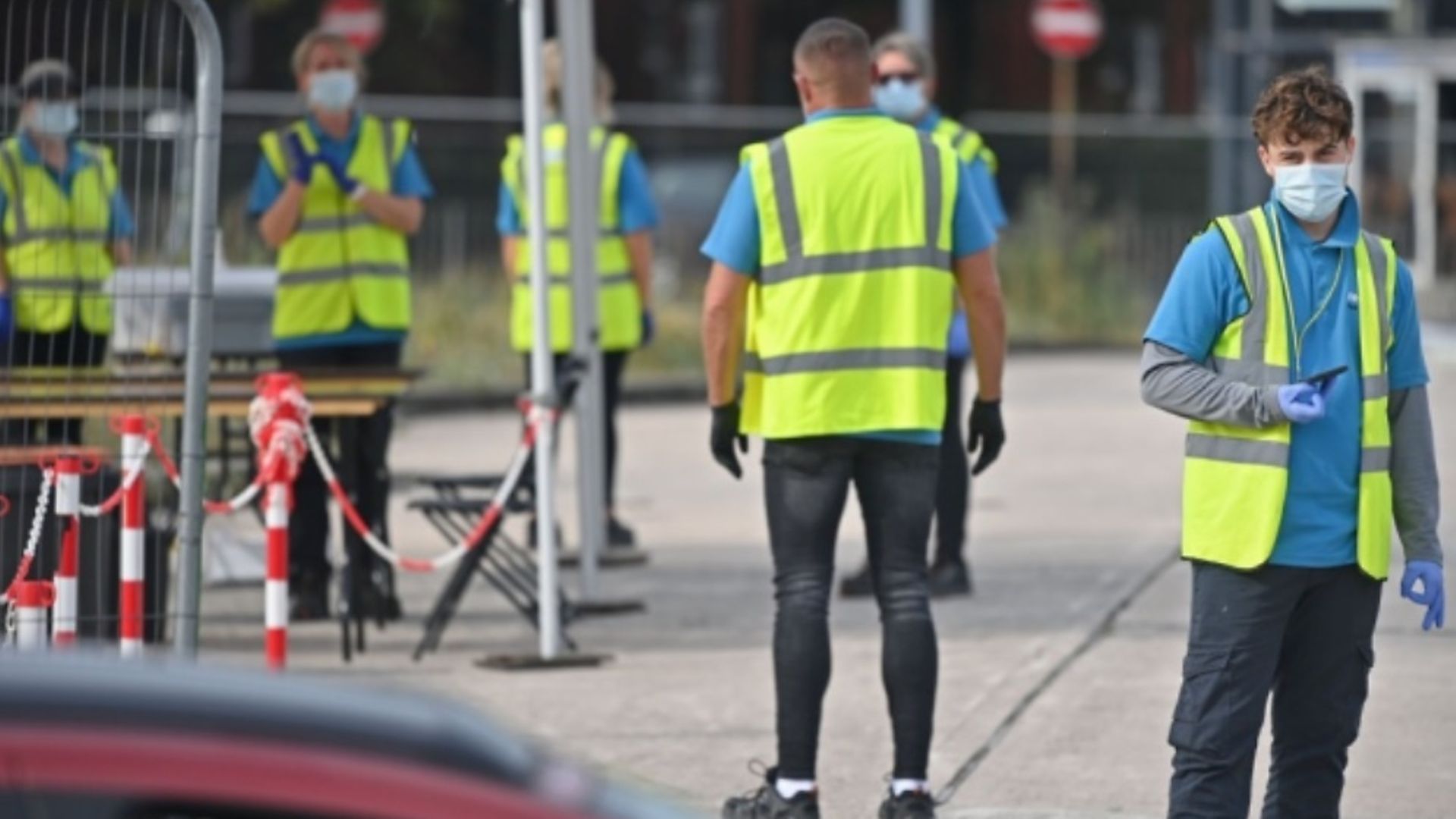
Had we been asked to predict the top political issues of 2020, few of us would’ve picked clinical tests among them – but these are testing times.
An understanding of exactly who has Covid-19 is an essential part of working out how the virus can be controlled and how our society, economy and lives can function.
The government has a lot on its plate right now, but the importance of a functioning testing system could not be greater. Ministers seem to understand this because they tell us often enough. But the reality is that the system is in a mess, and they must shoulder much of the blame.
Even for a government defined by messaging that’s mixed at best and outright garbled the rest of the time, its statements on coronavirus testing have been entirely incoherent.
Just since the start of September, the government set out a “moonshot” vision of 10 million tests a day, analysed within 20 minutes, to return life to normal. It also claimed to have vastly increased daily testing capacity – and then simultaneously claimed that testing capacity was being overwhelmed by demand, blaming selfish individuals taking tests when they shouldn’t.
Should we be taking tests more often than we are? Or less often than we are? Is needless demand the problem? What’s actually been going on?
The government’s statements tell us almost nothing – but the real picture is one of failure after failure, with at best half-hearted efforts to catch up.
Some of the issues began long before Boris Johnson became prime minister – while the UK has a substantial biotech sector, it doesn’t have as large a testing industry as, for example, Germany.
Neglect and overconfidence had left the UK’s longstanding pandemic preparation plans in much worse shape than experts believed they were. The UK had a decent start to the pandemic, but wasn’t in quite as good shape as it thought it was.
Several of the early mistakes with testing were compounded by the UK expert establishment trying to pretend its position was stronger than it really was.
In mid-March, deputy chief medical officer Jenny Harries said publicly that the community phase of testing was over, it was no longer an “appropriate intervention” and that the country would now focus testing on hospitals and care homes.
We later learned this was a decision driven by the country’s testing capacity – but at the time it was suggested it was a decision driven purely by the science, potentially taking pressure off increasing capacity. This proved to be a critical mistake. Sources within the science departments of the UK’s leading universities have told of their institutions offering to help in March, making personnel, equipment, labs and expertise available. The offers were not taken up. Some of those making them received no reply whatsoever.
Now, some six months down the line, those same labs are receiving requests to help the UK’s ‘Lighthouse Labs’ initiative – the public/private partnership that has sprung up in a bid to urgently boost the UK’s lacklustre testing capacity.
While the willingness to help is as strong as ever, many researchers have expressed frustration at the lost summer months.
Most of the other problems relating to the system really stem from this initial sluggishness and then – partly to try to compensate from this sluggishness – the government’s early obsession with hitting largely arbitrary headline targets, an obsession which saw any test posted out to the public counted towards those targets.
The subsequent complications associated with doing that have become clear: home postal tests are surprisingly complicated, requiring a particular series of steps, form-filling, and barcode sticking, and a sizeable minority of people make mistakes. Sometimes, reportedly, these mistakes include urinating on the swab rather than getting a saliva sample.
Even if the test is completed correctly, home tests can be spoiled during transit, where they can get too warm within postboxes, or while they’re actually being transported – especially if they’re going to far-away labs because of local capacity problems.
But the core issue seems to be that the government doesn’t seem to have grasped just how many tests we will need to get through winter – even though the famous winter-preparedness report Keir Starmer waved at Boris Johnson during Prime Minister’s Questions months ago set out just this.
You should get a test if anyone in your household had any one of these symptoms: a new, persistent cough, a fever, or a loss of taste.
The UK’s children have gone back to school, its students are returning to university and flu season is beginning. All three of the key coronavirus symptoms are among the most noticeable signs of cold and flu.
Anyone could have seen a need for far more tests, even if coronavirus wasn’t increasing at its current rate. The government appears to have missed this almost entirely – a shocking case of negligence – and is trying to pin the blame for the inevitable shortfalls on people taking tests they “don’t need”.
Responding to coronavirus was always going to be a vastly difficult exercise. Any country and any government will make mistakes and any country would have to build capacity into its systems for dealing with it.
The problem with UK testing seems to have been a lack of candour. To cover for the fact the country had no capacity to test at scale in March, the government simply pretended it didn’t need to. To cover for the fact there is not enough now, ministers are pretending it’s irresponsible demand.
The first step of fixing a problem is admitting it: the UK government needs to admit it still doesn’t have enough tests. Then it needs to start actually fixing that.










